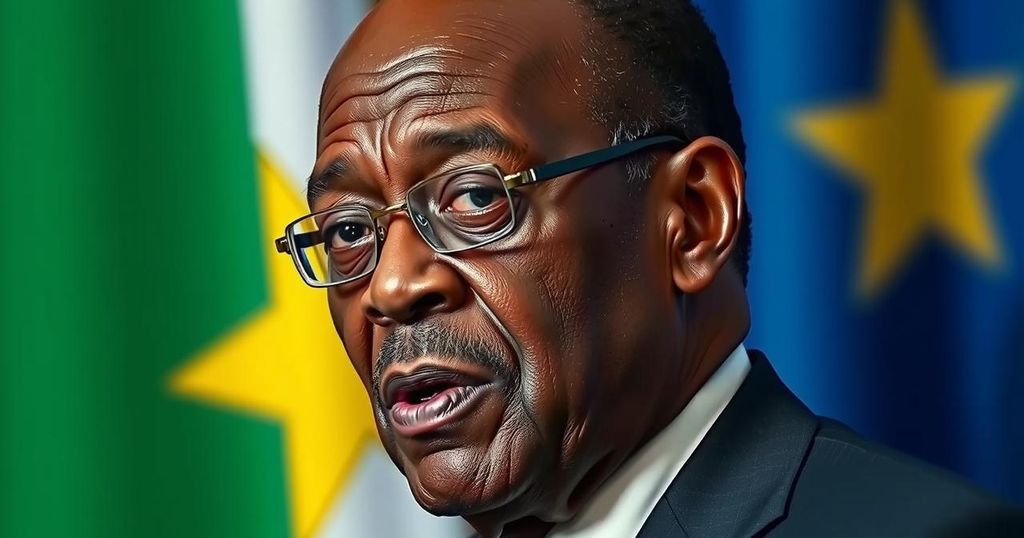Macky Sall’s Controversial Political Comeback During Senegal’s Elections

Macky Sall, former president of Senegal, is attempting a political comeback during Sunday’s snap parliamentary elections while based in Morocco. His leadership transitioned to Bassirou Diomaye Faye in April 2023 but is now stirring controversy amid accusations of mismanagement from his administration. As opposition figures rally against him, Sall emphasizes the need to protect his legacy and warns of potential dangers under the current governance.
DAKAR: Macky Sall, the former president of Senegal, is attempting to stage a political comeback from abroad following his term, which concluded in April 2023. His controversial return coincides with Sunday’s snap parliamentary elections, raising concerns regarding his motives and the potential implications for the political landscape in Senegal. Sall is currently leading a newly formed opposition coalition while residing in Morocco, having handed over his presidency to Bassirou Diomaye Faye when he left office.
Emerging political tensions are highlighted by Prime Minister Ousmane Sonko, who has suggested possible legal repercussions for members of Sall’s former administration, insinuating financial mismanagement and crises left in their wake. Political science experts speculate that Sall’s return is driven by a desire to safeguard his interests amidst the changing political dynamics, especially reflecting on his previous ambitions for a third presidential term.
Sall, who maintained international respect during his presidency, faced significant unrest during his final years, particularly with Sonko. His decision to postpone presidential elections in February ignited one of the nation’s worst political crises, revealing deep-rooted frustrations among the populace that ultimately led to the defeat of his successor.
As the new elections approach, Sall’s coalition, Takku Wallu Senegal, justifies his return by underscoring the need to protect his political legacy against what he characterizes as the new administration’s “calamitous governance.” Nonetheless, the government has criticized Sall’s intentions, blaming him for years of unrest and corruption. Sonko now promises transformative economic changes as he rallies support across Senegal, while Sall communicates through less engaged channels.
Although Sall retains the right to return to Senegal, potential legal complications loom, particularly given the accusations of “high treason” levied by Sonko against Sall’s administration. As the political atmosphere remains charged, Sall’s motives are under scrutiny, with dissenting views about the readiness of the Senegalese electorate to reintegrate a leader viewed as contentious and divisive.
Macky Sall served as the President of Senegal for twelve years and stepped down in April 2023. His presidency was marked by significant political unrest, particularly towards the end of his term. Sall’s decision to delay the presidential elections earlier this year sparked widespread protests and dissatisfaction among the population. The political turmoil facilitated the rise of Ousmane Sonko, his main rival, which intensified the scrutiny on Sall’s legacy. In light of the upcoming elections, Sall’s reappearance on the political scene, albeit from abroad, has raised notable questions about the motivations driving this move and its potential ramifications for the future of Senegalese politics.
In conclusion, Macky Sall’s re-entry into Senegalese politics presents a complex scenario characterized by legal uncertainties and deep-seated tensions within the political landscape. As a prominent former leader, his attempt to regain influence from abroad highlights not only his enduring connection to power but also the unresolved issues stemming from his administration’s management. The public sentiment towards Sall reflects a broader debate on governance, accountability, and the future trajectory of Senegalese democracy, especially in the wake of significant electoral changes and crises.
Original Source: www.arabnews.com








